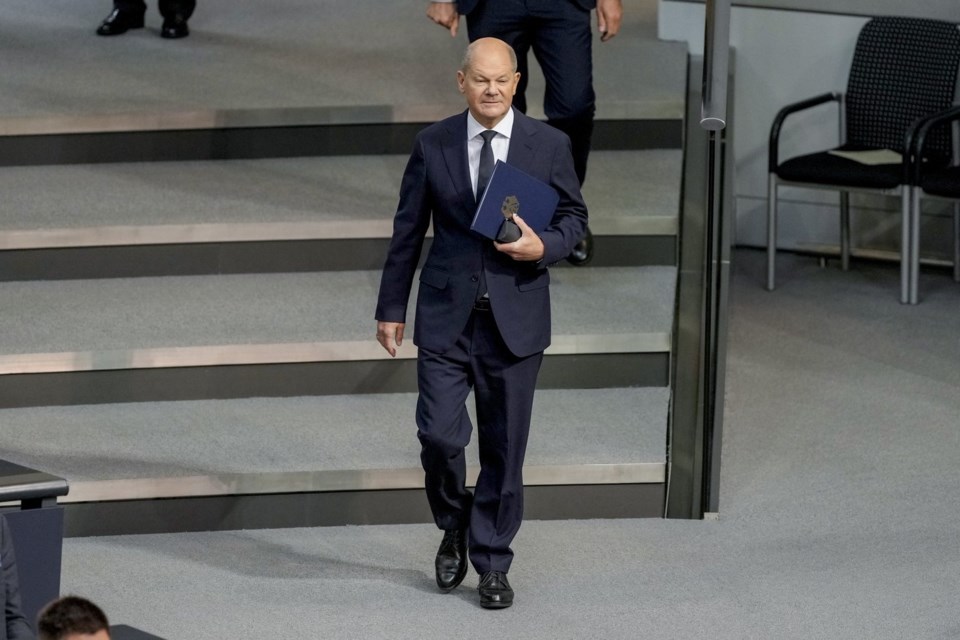BERLIN (AP) — German Chancellor said Wednesday that he will ask for a vote of confidence on Dec. 16, paving the way for early parliamentary elections in February. He declared his plans during a speech in parliament, a week after his .
Germany has been governed since 2021 by a coalition led by Scholz’s left-leaning Social Democrats and which included the smaller pro-business Free Democrats and the Greens.
It was an uneasy and fractious alliance, and it collapsed last week when Scholz of the Free Democrats in a late-night move following disagreements over how to revive the shrinking economy.
“The date at the end of February has now been set and I am very grateful for that," Scholz said, adding that he would try to pass important legislation through parliament before that, such as financial support for children of poor families, or amendments to the country's constitution to make the highest court more resilient to possible political interference.
He said he would submit a request for a vote of confidence on Dec. 11, so that the Bundestag can decide on this on Dec. 16. The chancellor had initially wanted to have an early election only by late March — ahead of the vote that is regularly scheduled for September 2025.
However, the center-right Christian opposition pushed for a quicker vote in the parliament to speed up the next election.
In the end, party leaders across the political spectrum agreed on Wednesday on the two dates for the on Feb. 23.
During his speech, Scholz as well as Friedrich Merz, the head of the main opposition party in parliament, the Christian Democrats, already shifted into campaign mode — though the heated part of campaigning usually only begins around six weeks before an election in Germany.
“There is a great sense of relief in our country. For a week now, the so-called progressive coalition (...) has been history. And that is continuing good news for Germany," Merz said to the applause of his Christian Democrats as he spoke after Scholz in the parliament.
Four candidates are expected to make their bid for the chancellery with voters in February.
Scholz has said that he wants to run as chancellor candidate again — even though his party has not yet announced his candidacy.
Merz of the Christian Democrats, which are currently leading the polls, was by his party in September.
For the environmentalist Greens, the country’s current economy minister and vice chancellor, Robert Habeck, will and
are a small party that lost popularity in recent elections and whose support currently hovers around 10%, which means it is unlikely that he would end up as the country’s leader.
The , or AfD, has said they would nominate current party leader Alice Weidel next month as their candidate.
Merz’s Christian Democrats have been polling around 30% or more in the polls for a year now. Scholz’s Social Democrats, currently the strongest governing party, are on third place with around 16% — behind the AfD, which is at around 19%.
The main campaign issues are likely going to be y which led to the collapse of the government in the first place, more efficient control of migration, and — when it comes to foreign policy issues — Russia’s war on Ukraine and the next presidency of Donald Trump.
Kirsten Grieshaber, The Associated Press



